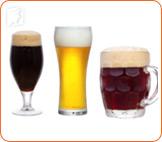A woman's sex drive can noticeably diminish during menopause. It can be frustrating for women as they try to come to terms with having little or no desire to be physically active with their partner.

Estrogen, progesterone, and testosterone all play a vital role in regulating a woman's sexual desire, so when production of these hormones is disrupted, so too are all related sexual functions. Read on to find out more about alcohol's effects on the problem and how to treat a loss of libido.
Alcohol and Loss of Libido
All symptoms of menopause can be made considerably worse by drinking alcohol, and it is no different for a low sex drive. Alcohol can affect libido by:
Decreasing circulation
When a woman drinks more than the recommended amount of alcohol, her heart needs to work harder to circulate the blood because alcohol often constricts blood vessels. This means that circulation decreases and blood isn't able to reach the genital area as quickly or as effectively. However, decreased circulation can also lengthen arousal time.
Lowering hormone production

When alcohol is drunk in excess, the production of testosterone is negatively affected. When there is too much alcohol in the system, the body focuses on trying to breakdown the alcohol so that it can pass through the body. The enzymes that do this are the same enzymes that are required for testosterone production. The amount of cortisol, the stress hormone, also increases after alcohol consumption, and this makes production of all three primary sex hormones more difficult.
Making climax harder to achieve
A decrease in testosterone, estrogen, and progesterone dampens libido, which also means regulation of the sexual organs and sexual systems lessens, so climax becomes harder to reach.
Decreasing vaginal lubrication
A shortage or imbalance of hormones means sexual functions don't work as well as they should. Natural lubrication in the vagina is likely to decrease during menopause due to estrogen deficiency. Using water-based lubricants however, can make sex more pleasurable.
More Information about Treating a Loss of Libido
Because of alcohol's negative effects on sex drive, moderating or eliminating your alcohol intake is one of the many lifestyle adjustments you can make to treat a decreased libido. Staying hydrated, eating a balanced diet, exercising regularly, and avoiding tobacco can also help. Coupling these lifestyle changes with a hormone-regulating herbal supplement is often the most effective way of combating this common menopause symptom. Only in severe and persistent cases medications are taken.
Sources
- Studd, John. "Loss of Libido and Menopause". The Management of Menopause. Annual Review 1998. Partenon Publishing.
- Channon L.D and Ballinger S.E. "Some Aspects of Sexuality and Vaginal Symptoms during Menopause and their Relation to Anxiety and Depression". British Journal of Medical Psychology. June 1986. 59 (2): 173-80.
- Sarell, Philip, M.D. "Psychosexual effects of menopause: Role of androgens". American Journal of Obstetrics & Gynecology. March 1999. 180: 3S-II.

